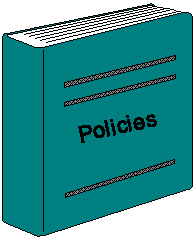Administrative Notices
 Topics listed below can also be found in the University Handbook
and/or the Class Schedule
Topics listed below can also be found in the University Handbook
and/or the Class Schedule
Drop/Add:
The last day
to add this course will be [CHECK THE UNIVERSITY HANDBOOK FOR THE EXACT
DATE].
 Academic Honesty.
Academic integrity is at the core of the educational mission of the
institution. Students are expected to conduct themselves with honesty and forthrightness
in all academic and personal interactions within the University community. A student who
enrolls at the University must conduct himself/herself in a manner compatible with the
University’s function as an educational institution. Consequently, conduct that
offends the core mission of education is strictly prohibited. Academic dishonesty is a
general term for actions that are not representative of the student’s own work or in
keeping with the directives of the faculty member assigning the course work. Some of the
more common forms (not a comprehensive list) of academic dishonesty are: cheating,
plagiarism, collusion, the substitution for credit of any work or materials that are
attributable in whole or in part to another person, taking an examination for another
person, any act designed to give unfair advantage to a student or the attempt to commit
such acts.
Academic Honesty.
Academic integrity is at the core of the educational mission of the
institution. Students are expected to conduct themselves with honesty and forthrightness
in all academic and personal interactions within the University community. A student who
enrolls at the University must conduct himself/herself in a manner compatible with the
University’s function as an educational institution. Consequently, conduct that
offends the core mission of education is strictly prohibited. Academic dishonesty is a
general term for actions that are not representative of the student’s own work or in
keeping with the directives of the faculty member assigning the course work. Some of the
more common forms (not a comprehensive list) of academic dishonesty are: cheating,
plagiarism, collusion, the substitution for credit of any work or materials that are
attributable in whole or in part to another person, taking an examination for another
person, any act designed to give unfair advantage to a student or the attempt to commit
such acts.
 Violations of University Policy:
Official university policy states that all suspected cases of alleged
academic dishonesty must be referred to the Dean of Students for investigation and
appropriate disposition. Under the University of Texas System Reagents’ Rules, the
Dean of Students has primary authority and responsibility for the administration of
student discipline, including academic dishonesty. It is contrary to university policy for
a faculty member to assign a disciplinary grade such as "F" or zero to an
assignment, test, examination, or other course work as a sanction for admitted or
suspected scholastic dishonesty in lieu of formally charging the student through the Dean
of Students. Similarly, students are prohibited from proposing and/or entering into an
arrangement with a faculty member to receive a grade of "F" or any other reduced
grade in lieu of being charged with academic dishonesty. Disciplinary sanctions for proven
academic dishonesty will range from disciplinary probation, to a failing grade on the
test, paper, or course, to suspension or dismissal from the University, among other
sanctions. All research papers, term papers, or other writing intensive assignments in
this course must adhere to APA style. Students are expected to submit all papers with the
appropriate citations, references, etc. If you are unsure of the parameters of this
writing style, please contact the course instructor for further information. Style guides
are available in the University Bookstore. Unless otherwise instructed, all assignments
are to be done individually
Violations of University Policy:
Official university policy states that all suspected cases of alleged
academic dishonesty must be referred to the Dean of Students for investigation and
appropriate disposition. Under the University of Texas System Reagents’ Rules, the
Dean of Students has primary authority and responsibility for the administration of
student discipline, including academic dishonesty. It is contrary to university policy for
a faculty member to assign a disciplinary grade such as "F" or zero to an
assignment, test, examination, or other course work as a sanction for admitted or
suspected scholastic dishonesty in lieu of formally charging the student through the Dean
of Students. Similarly, students are prohibited from proposing and/or entering into an
arrangement with a faculty member to receive a grade of "F" or any other reduced
grade in lieu of being charged with academic dishonesty. Disciplinary sanctions for proven
academic dishonesty will range from disciplinary probation, to a failing grade on the
test, paper, or course, to suspension or dismissal from the University, among other
sanctions. All research papers, term papers, or other writing intensive assignments in
this course must adhere to APA style. Students are expected to submit all papers with the
appropriate citations, references, etc. If you are unsure of the parameters of this
writing style, please contact the course instructor for further information. Style guides
are available in the University Bookstore. Unless otherwise instructed, all assignments
are to be done individually
 Scholastic Dishonesty:
The University of Texas at
El Paso prides itself on its standards of
academic excellence. In all matters of intellectual pursuit, UTEP faculty
and students must strive to achieve based on the quality of the work produced
by the individual. In the classroom and in all other academic activities, students
are expected to uphold the highest standards of academic integrity. Any form
of scholastic dishonesty is an affront to the pursuit of knowledge and
jeopardizes the quality of the degree awarded to all graduates of UTEP. Any
student who commits an act of scholastic dishonesty is subject to discipline.
Scholastic dishonesty includes, but is not limited to cheating, plagiarism,
collusion, the submission for credit of any work or materials that are
attributable in whole or in part to another person, talking an examination for
another person, any act designed to give unfair advantage to a student or the
attempt to commit such acts. Proven violations of the detailed regulations, as
printed in the Handbook of Operating Procedures (HOP) and available in the
Office of the Dean of Students, may result in sanctions ranging from
disciplinary probation, to failing grades on the work in question, to failing
grades in the course, to suspension or dismissal, among others.
Scholastic Dishonesty:
The University of Texas at
El Paso prides itself on its standards of
academic excellence. In all matters of intellectual pursuit, UTEP faculty
and students must strive to achieve based on the quality of the work produced
by the individual. In the classroom and in all other academic activities, students
are expected to uphold the highest standards of academic integrity. Any form
of scholastic dishonesty is an affront to the pursuit of knowledge and
jeopardizes the quality of the degree awarded to all graduates of UTEP. Any
student who commits an act of scholastic dishonesty is subject to discipline.
Scholastic dishonesty includes, but is not limited to cheating, plagiarism,
collusion, the submission for credit of any work or materials that are
attributable in whole or in part to another person, talking an examination for
another person, any act designed to give unfair advantage to a student or the
attempt to commit such acts. Proven violations of the detailed regulations, as
printed in the Handbook of Operating Procedures (HOP) and available in the
Office of the Dean of Students, may result in sanctions ranging from
disciplinary probation, to failing grades on the work in question, to failing
grades in the course, to suspension or dismissal, among others.
(Question: What is wrong with the above
Section ???)

This page was last updated on
01/19/04.